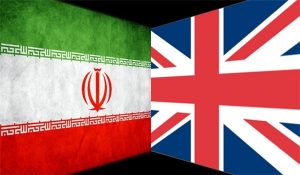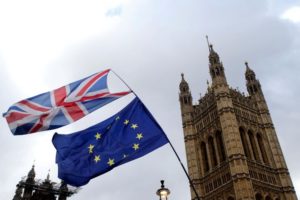The British Conservative Government’s Political Elite, and the European Union: Safeguarding British Interests (With Special Reference to: 2010 – 2016)
The Conservative Party, as was touched on earlier, always overtly felt a strong sense of involvement with the Empire. Such sentiment was evident at the Party’s annual conferences:
“Let us never forget the Imperial spirit, the indefinable, sentimental, if you like, feeling which is the spark that sets our reason aglow; and it is our reason that tells us that the policy which we are now advocating, the policy of Joseph Chamberlain and the policy of Benjamin Disraeli, remains the right one”27.
The “indefinable, sentimental feeling” for most Conservatives is simply pride. For the Conservatives, the British imperial achievement was something to be distinctly proud of. Conservatives credited the Empire with “maintaining over a large part of the Earth’s surface the rule of law, of justice, and the moral influence of the only league of nations which has ever worked. More than this, it was held to provide the whole basis of Britain’s claim to national greatness in modern times; and Conservatives were nothing if not conservers of Britain’s greatness”28. The Conservatives labelled themselves the “imperial party” and their attitudes towards Empire distinguished their party from others as fundamentally as, for example, towards nationalisation. Cuthbert Alport argued that “socialism by its nature could not comprehend the problems of the Empire, particularly the Colonial Empire.” He continued by saying about socialism that: “they nurse a few prejudices and call these a policy, but they regard the responsibilities of the Colonial Empire as a tiresome hindrance to other things.”29
Conservatives had canvassed the idea of Greater Britain, and subsequently Imperial Federation. They had the Liberal ideal of free trade to combine with that of imperial preference. They had done most to formulate and harmonise imperial sentiments with social-imperialism, by which, in effect, the working classes had been offered imperialism as a substitute for socialism. The imperialist beliefs which many Conservatives were still professing after 1945 had been fixed by the history of this period (the Second World War). About half the members of the parliamentary party bad been born before the turn of the century. It was still possible for a conference to be addressed by a man who had been Joseph Chamberlain’s P.P.S.. It was a Conservative belief that Britain’s imperial mission and the Conservative’s imperial mission were one and the same, and, as was explained in Chapter One, Britain’s interest in the Empire stems from the direct interests of the political elite: for instance, the Colonial Services, drawn from the public schools and the ancient universities; moreover, the settlers and planters who emigrated from Britain to the colonies were largely from the Imperial class. Thus this was a further justification for the belief that the Empire was especially a Conservative institution.
Pages: 1 2 3 4 5 6 7 8 9 10 11 12 13 14 15 16 17 18 19 20 21 22



